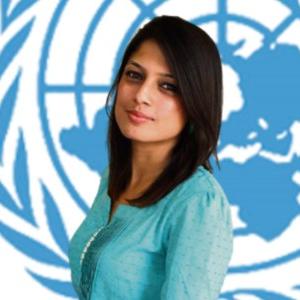Nepal Civil Society Conference Paves the Way for Nepal's Future Amid Global Challenges
04 September 2024
Kathmandu, September 4: Civil Society Organizations in Nepal have demanded that the Summit of the Future should result in actionable plans with accountability, equitable resource distribution, and stronger international commitments for peace, inclusion, climate justice, digital transformation and youth empowerment.
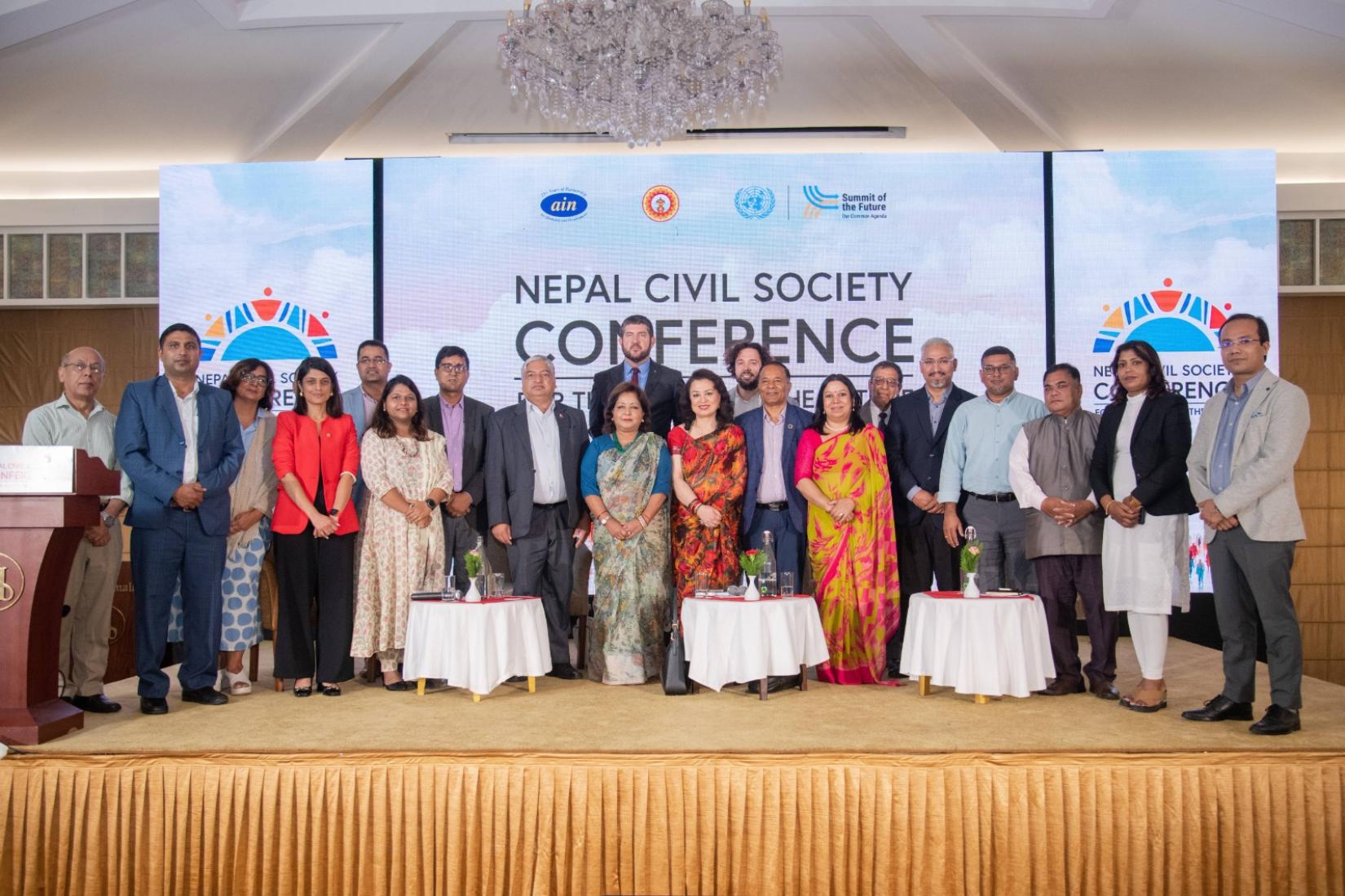
The Nepal Civil Society Conference for the Summit of the Future organized by the United Nations Nepal (UN Nepal), NGO Federation of Nepal (NFN) and Association of International NGOs in Nepal (AIN) on 3 September, brought together national and international civil society organizations and those representing women, youths and marginalized groups to discuss how Nepal can better contribute to shape the Summit of the Future and better utilize the Pact of the Future—the outcome document of the Summit of the Future—in the support of realizing Nepal’s development priorities and Sustainable Development Goals (SDGs).
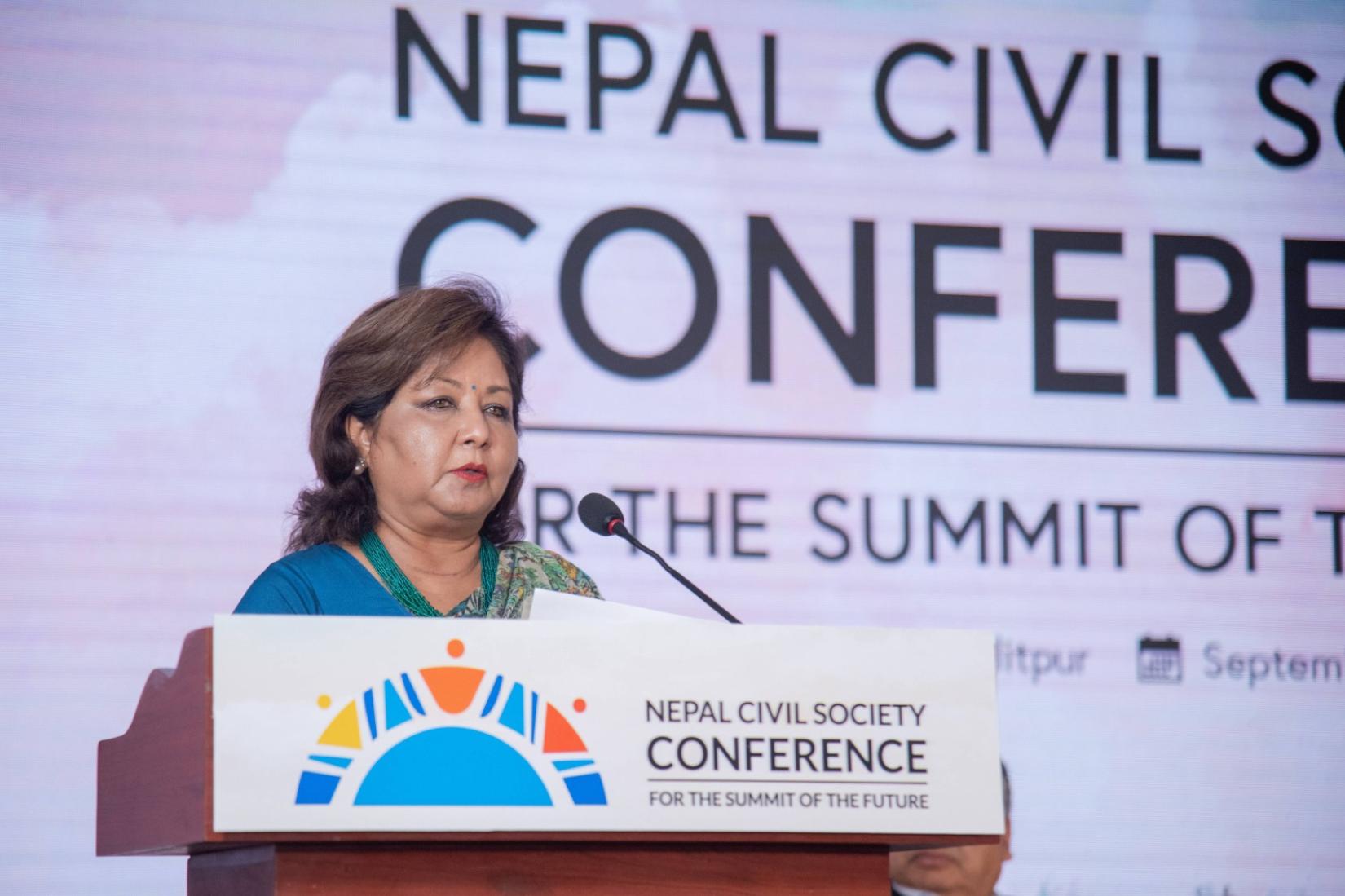
Speaking at the conference, the Chief Guest Honorable Minister of Foreign Affairs Dr. Arzu Rana Deuba emphasized on the critical role that civil society organizations (CSOs) can play in taking Nepal’s peace process to the meaningful conclusion, contributing to the implementation of the recently adopted laws on transitional justice. She further emphasized their role in shaping the future, influencing policy reforms and making governance more transparent and inclusive. She further stressed on unified efforts and shared responsibility to address challenges, promote accountability towards multilateral system, strengthen global governance, and foster intergovernmental solidarity for sustainable development, including for LDC graduating countries’ smooth transition and improved development cooperation through the Summit of the Future
At the conference, the members of the civil society also stressed prioritization and inclusion of youth and marginalized communities at all levels of decision-making centering on equity, justice, and diversity.

On behalf of the UN Resident Coordinator Ms. Hanaa Singer Hamdy, Resident Coordinator a.i. and UNESCO Representative to Nepal, Mr Michael Croft, said “The UN in Nepal is proud to co-host the critical Civil Society Conferences in the lead-up to the Summit of the Future. As a major player in the wheel of development, it is crucial to meaningfully feed civil society perspectives into the pact of the future. Therefore I hope the outcome document of the Nepal CSO conference which delved around consolidating Nepal’s peace process, ensuring inclusive and sustainable development and meaningful youth participation at all levels, will be a place to start the critical multistakeholder coalitions of Member States, civil society, and UN to achieve inclusive sustainable development and lasting peace.
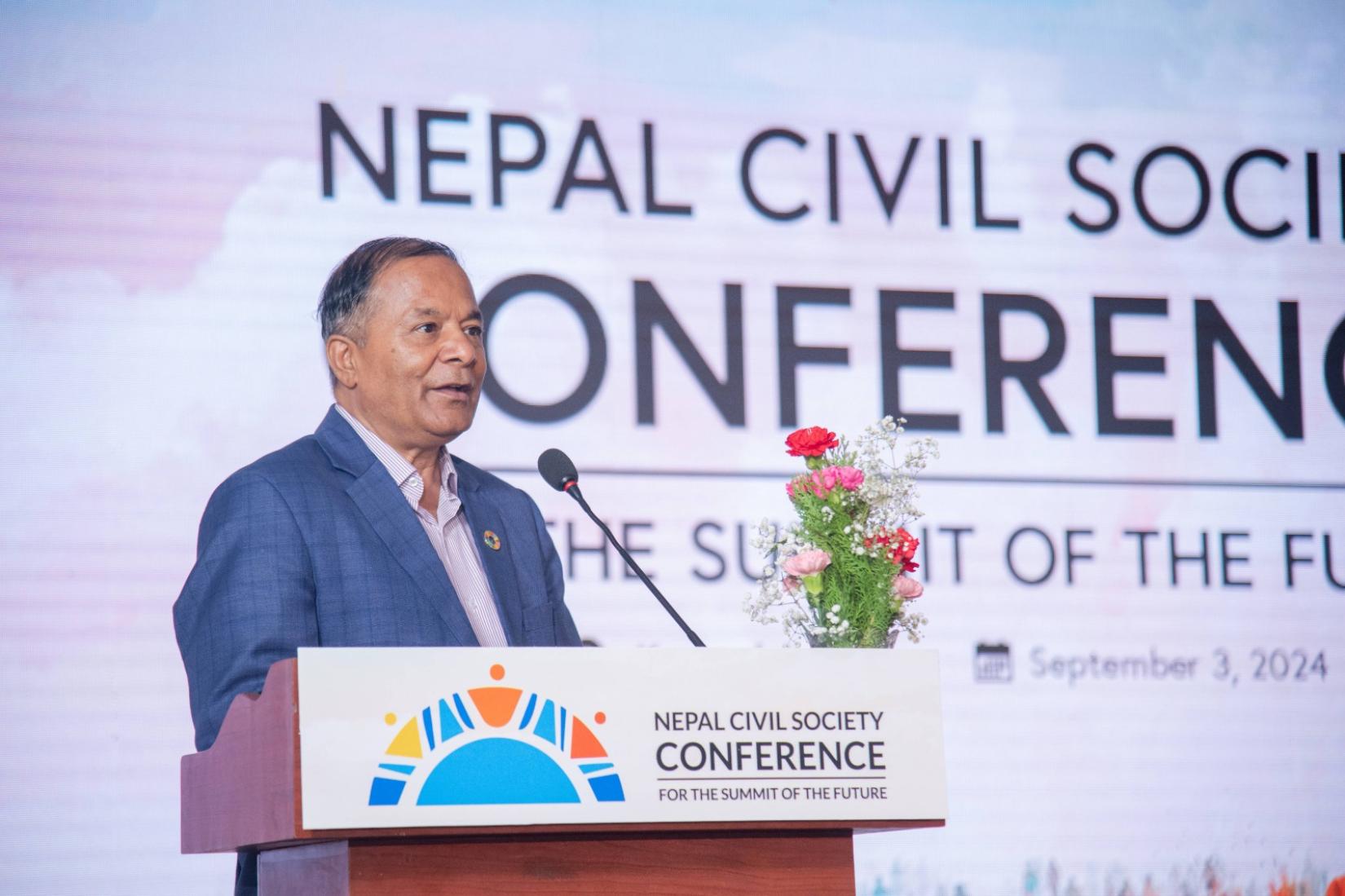
Mr. Ram Prasad Subedi, chairperson of NGO Federation of Nepal (NFN) spoke about Nepal's significant challenges in the economic, social, and cultural sectors and highlighted the importance of involving international NGOs in discussions on peace and justice, stressed the need to retain young talent in Nepal for the country's progress. He said, “Countries should invest in peace and development rather than militarism and war.”
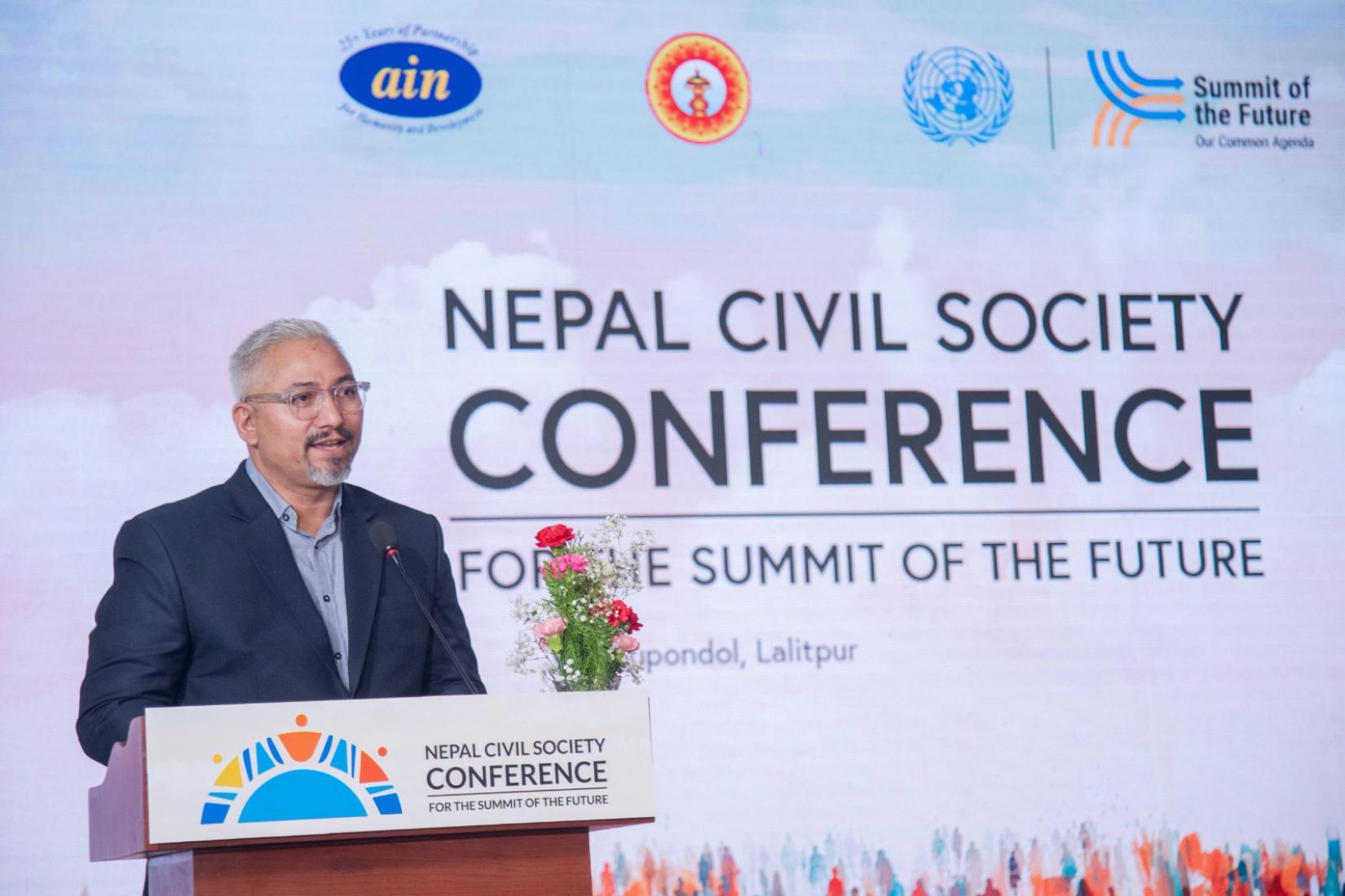
Mr. SP Kalaunee, chairperson of AIN, emphasized the importance of timely discussions on envisioning the future. He also cautioned that while LDC graduation will bring changes, transformations won't happen overnight, and efforts must continue to address current challenges, always keeping people at the center of the SDG efforts.
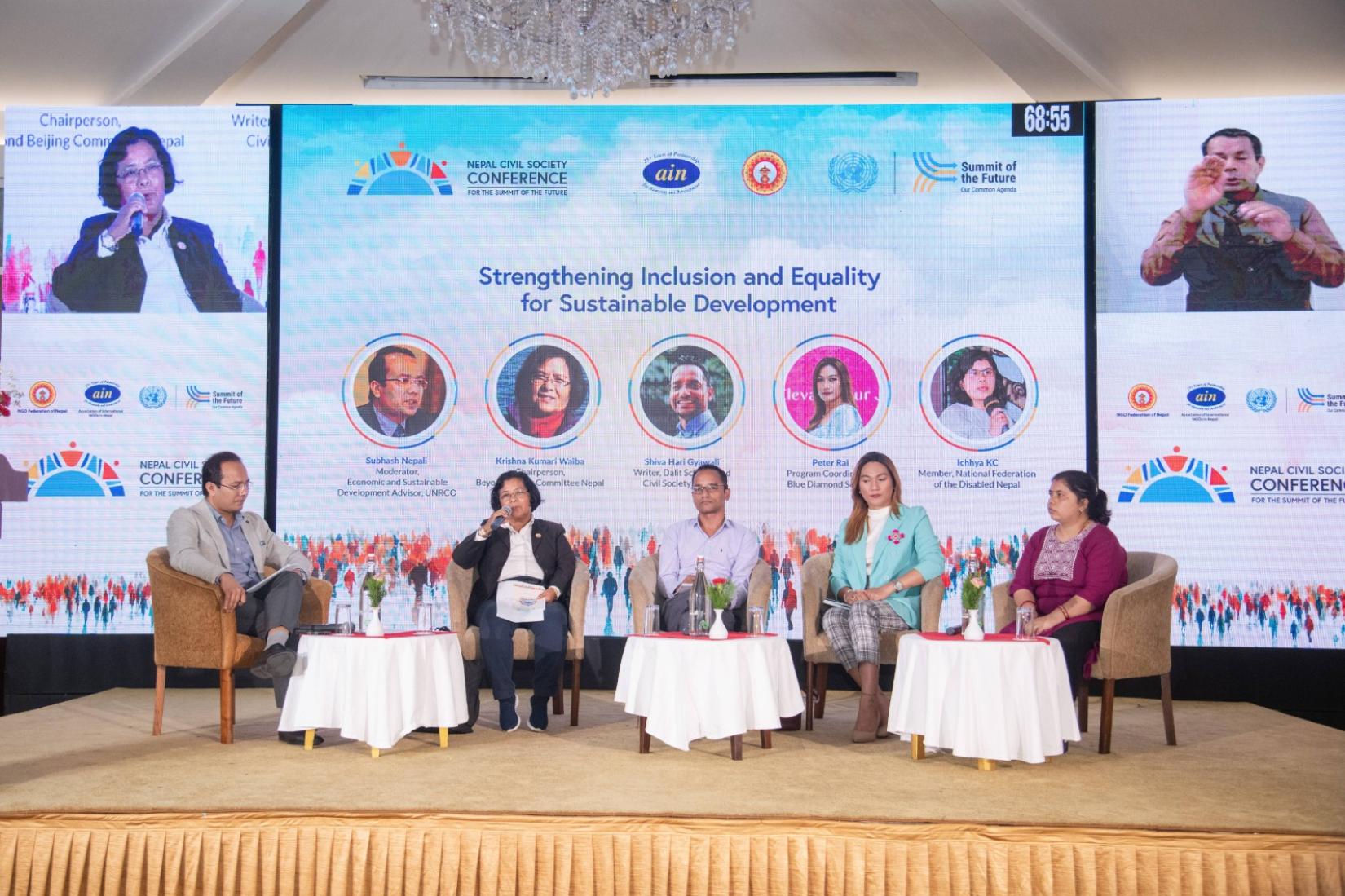
An outcome document on behalf of Civil Society Organizations was also presented at the conference. The document outlines citizen perceptions and demands regarding the SDGs and the upcoming Summit of the Future, emphasizing the need for actionable plans with accountability, equitable resource distribution, and stronger international commitments, particularly from developed countries. It calls for the inclusion of marginalized communities in decision-making, expanded civil liberties, investment in youth, and a greater role for civil society in achieving the SDGs, among others.
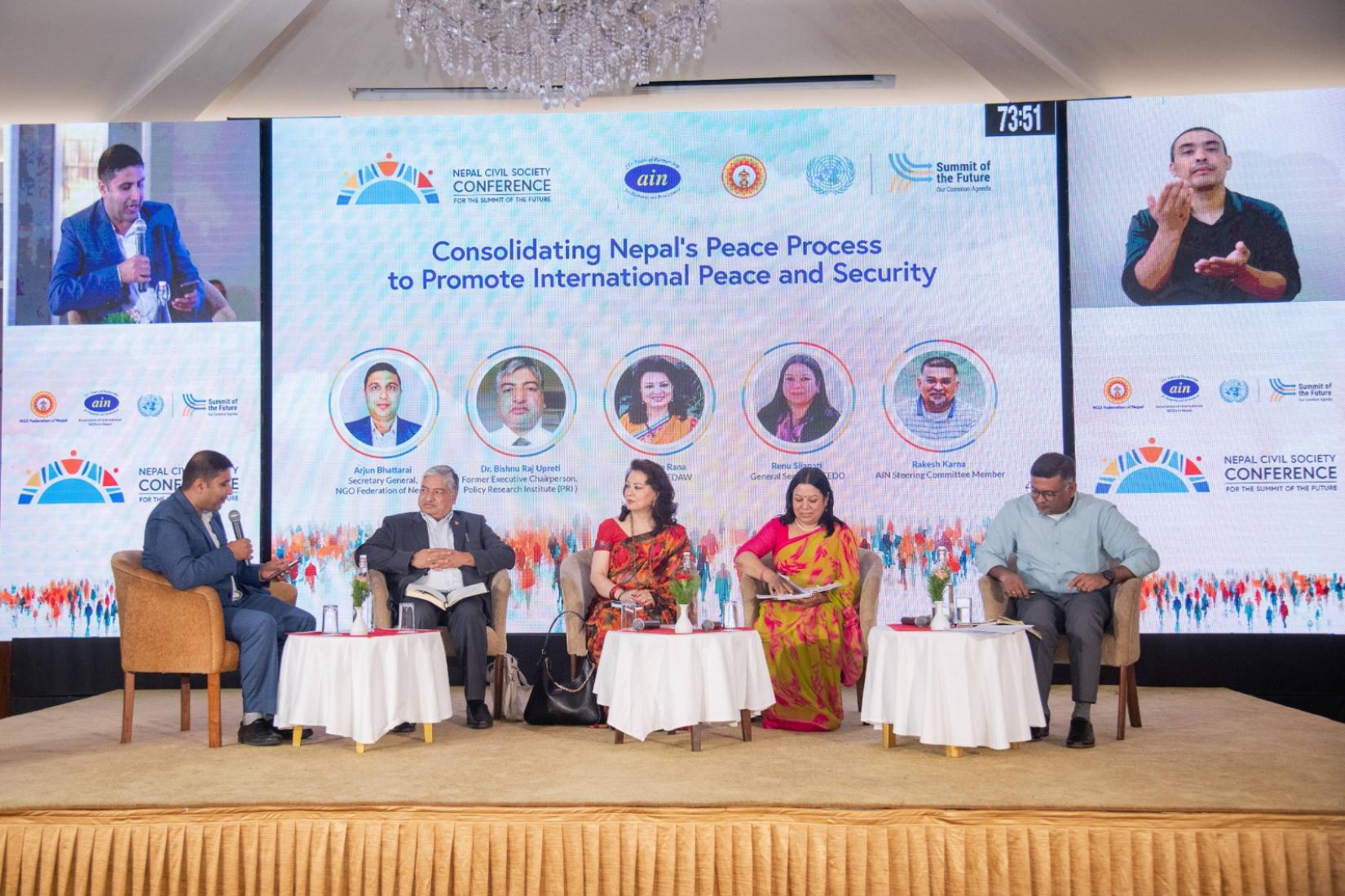
The conference, which featured three-panel discussions on Consolidating Nepal’s Peace Process to Promote International Peace and Security, Strengthening Inclusion and Equality for Sustainable Development, and Youth and Digital Transformation for Gender, Social, and Climate Justice, underscored the need for continued collaboration and concrete action to ensure Nepal’s progress towards 2030 SDG targets is inclusive and sustainable. The conference has shaped Nepal’s position at the upcoming Summit of the Future.
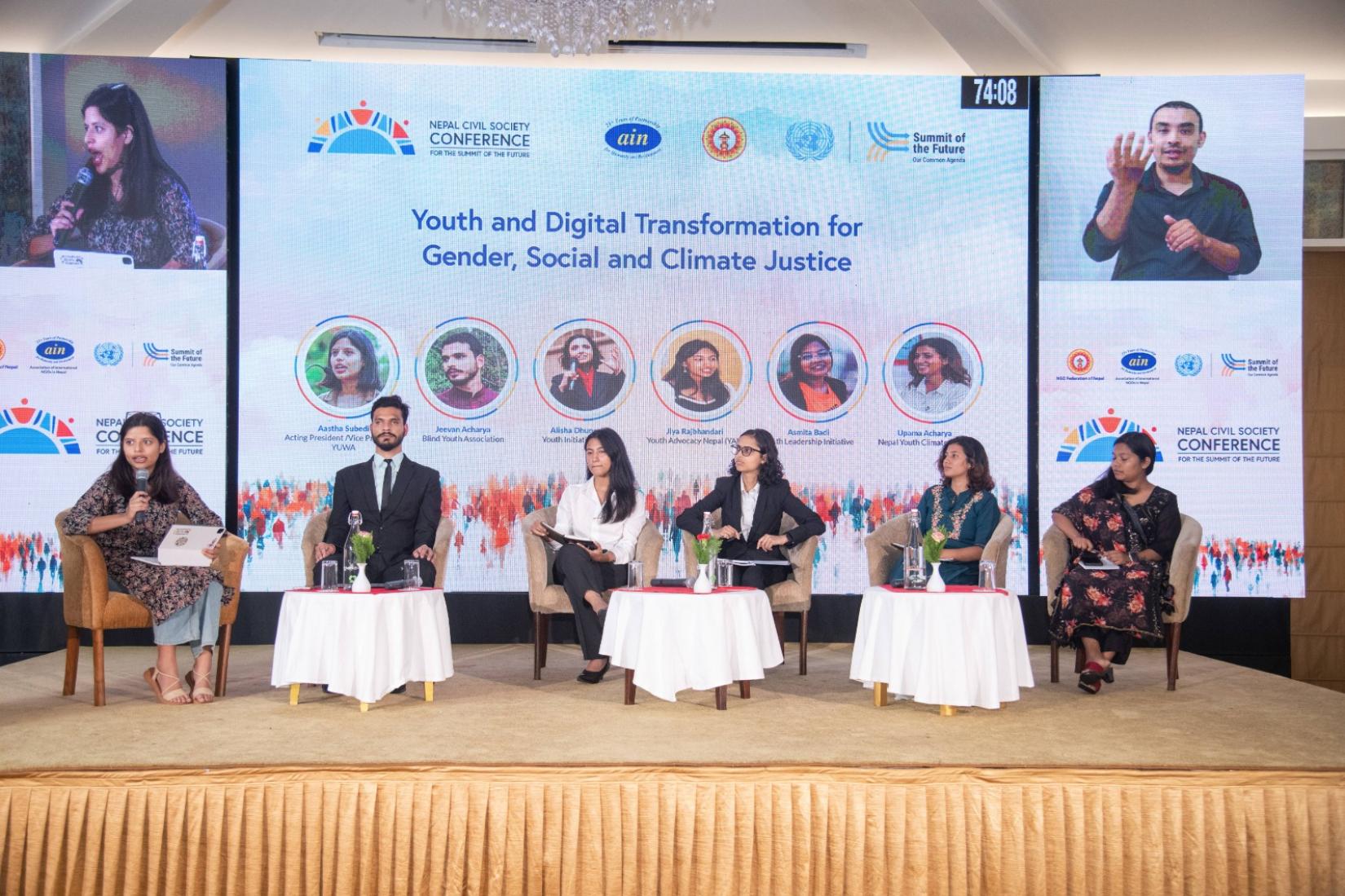
#
For Further Information contact:
Simrika Sharma
National Information Officer
UN Information Center
Email: simrika.sharma@un.org
Tel: 5523200 Ext. 1510
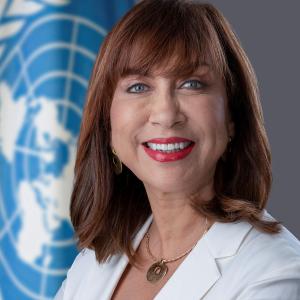
Hanaa Singer-Hamdy
Prior to this, she held several senior management positions in UNICEF offices across the world, including as the Associate Regional Director in Geneva and as Country Representative for Syria, Nepal, Kazakhstan and Azerbaijan.
In Syria, she provided strategic leadership to one of the largest protection crises on the global stage – successfully scaling up programmes through an integrated package of high impact interventions in health, nutrition, water and sanitation, education and child protection - increasing the reach of UNICEF’s work to the most vulnerable children including in besieged and hard-to-reach areas.
As UNICEF Chief in Nepal, she pioneered strategic programmes for scaling up sanitation, adolescents and multisectoral nutrition programmes, establishing strategic new alliances resulting in the government adopting national action plans. She has also led humanitarian programmes in Burundi and Haiti, and as a regional emergency advisor for CEE/CIS countries coordinated setting up cross border humanitarian operations to Afghanistan ,from central Asia, and Iraq,from south Turkey. She also provided technical support to emergency preparedness programmes in the North Caucasus, CEE/CIS countries .
Ms. Singer-Hamdy holds a Master's degree in Political Sociology and a Bachelor's degree in Political Science from the American University in Cairo, Egypt. She obtained a diploma in “Planning and Management of Decentralized Development Projects” from Bradford University in the United Kingdom. Ms. Singer-Hamdy has engaged in academia and research in political sociology and international relations at the American University of Cairo and at the Sadat’s Academy for Management Sciences, Faculty of Political Science of Cairo University.
